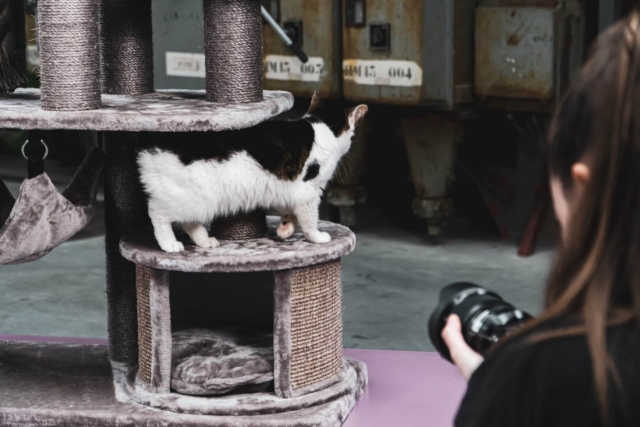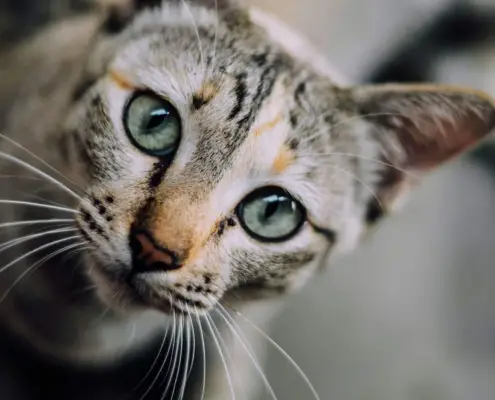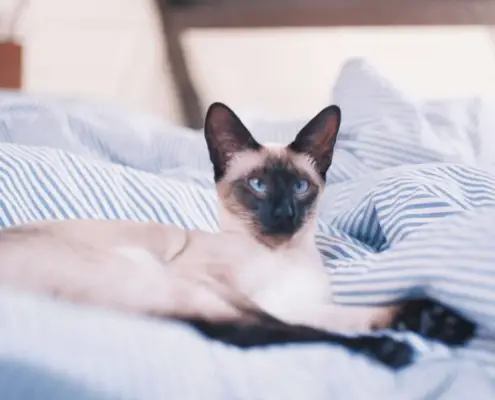
Play is an essential aspect of a cat’s life. It not only provides them with physical exercise but also stimulates their mental and emotional well-being. Cats are natural hunters, and play allows them to satisfy their instinctual need to stalk, chase, and pounce. Engaging in play helps cats maintain a healthy weight, prevents obesity-related issues, and promotes better overall fitness. Additionally, playtime offers an outlet for their energy and can prevent destructive behavior caused by boredom or frustration.
Understanding a cat’s natural instincts
To comprehend why cats love to play, it is crucial to understand their natural instincts. Cats are born with a strong prey drive, which compels them to engage in activities that simulate hunting. They possess keen senses, including sharp vision, excellent hearing, and a highly developed sense of smell. These senses enable them to detect even the slightest movements, making them skilled hunters. By engaging in play, cats can fulfill their instinctual need to hunt and capture prey, even if it’s in the form of a toy or a feather wand.
Why do cats like to play?
Cats enjoy playing for several reasons. Firstly, play allows them to release pent-up energy. Cats are crepuscular animals, meaning they are most active during dawn and dusk. Playtime provides an opportunity for cats to burn off excess energy accumulated during their rest periods. Secondly, play stimulates their mental and cognitive abilities. Solving puzzles, chasing toys, and engaging in interactive play helps cats stay mentally sharp and prevents boredom. Lastly, play is a form of social interaction. Kittens learn vital social skills through play, such as communication, boundaries, and body language. Cats of all ages enjoy playing with their human companions as it strengthens the bond between them.
The benefits of play for cats
Engaging in play has numerous benefits for cats. Regular play sessions help keep cats physically fit, preventing obesity and associated health issues such as diabetes and heart disease. Play also improves muscle tone, coordination, and agility. Additionally, play enhances a cat’s mental and emotional well-being by reducing stress and anxiety. The stimulation provided by playtime can prevent behavioral problems such as aggression or excessive grooming. Furthermore, play promotes better sleep as it tires cats both physically and mentally, allowing them to rest more soundly.
Different types of cat toys and play activities
Cats have diverse preferences when it comes to play. Some cats enjoy chasing and pouncing on small, fast-moving toys, while others prefer interactive play involving their human companions. There are various types of cat toys available in the market to suit different play styles. Feather wands, laser pointers, and interactive treat puzzles are popular choices for engaging in interactive play. For independent play, toys that mimic prey, such as mice or balls with bells inside, are often preferred. Additionally, scratching posts and climbing trees provide cats with opportunities for play and exercise.
Creating a stimulating play environment for your cat
To encourage play, it is essential to create a stimulating environment for your cat. Provide a variety of toys that cater to different play styles and rotate them regularly to prevent boredom. Interactive toys that dispense treats or make sounds can add an extra level of excitement. Create vertical spaces such as cat trees or shelves where your cat can climb, jump, and observe its surroundings. Consider placing bird feeders or an aquarium near windows to provide visual stimulation. Additionally, designate a play area with scratching posts and toys that your cat can access whenever it feels the need to play.
Playtime tips for bonding with your cat
Playtime is not only beneficial for your cat’s well-being but can also strengthen the bond between you and your feline companion. Engage in interactive play sessions with your cat, using toys that allow both of you to participate. This will create positive associations and build trust. Observe your cat’s play preferences and adapt to their style. Some cats enjoy gentle play, while others prefer more vigorous activity. Use this time to communicate with your cat through body language and vocal cues. Reward your cat with praise, treats, or affection to reinforce the bond established during playtime.
How play helps with a cat’s physical and mental well-being
Play is vital for maintaining a cat’s physical and mental well-being. Regular play sessions provide the necessary exercise to keep cats fit and healthy. Engaging in play helps prevent weight gain and obesity-related health issues. It also promotes better muscle tone, flexibility, and overall physical fitness. Mentally, play stimulates a cat’s cognitive abilities, keeping their minds sharp and alert. It provides mental enrichment, preventing boredom and the associated behavioral problems. Play also reduces stress and anxiety, improving a cat’s overall emotional well-being.
Play behavior in different cat breeds
Different cat breeds may exhibit varying play behaviors due to their genetic predispositions. Some breeds, like the Bengal or Abyssinian, have a high energy level and an intense prey drive. They require plenty of playtime and mental stimulation to satisfy their needs. Other breeds, such as the Persian or Ragdoll, may have a more relaxed and laid-back play style. Understanding your cat’s breed-specific play tendencies can help you select the most suitable toys and play activities to keep them entertained. However, it’s important to remember that each cat is an individual, and their play preferences may not always align with their breed’s general characteristics.
Embracing the playful nature of cats
Understanding why cats love to play is key to providing them with a fulfilling and enriched life. Play is essential for their physical, mental, and emotional well-being. By engaging in play, cats can satisfy their natural instincts, release excess energy, and maintain a healthy weight. Playtime also strengthens the bond between cats and their human companions, leading to a more harmonious relationship. So, embrace the playful nature of cats and provide them with the playtime they need to thrive.
Spend quality playtime with your cat today and witness the joy and benefits it brings to both of you.
If you enjoyed my article, I would appreciate you sharing it with your network.

Sima Ndlebe
Sima writes for CatBuzz. He is interested in Cats, Health and Fitness, and Entrepreneurship.
Published: 14 November 2023




